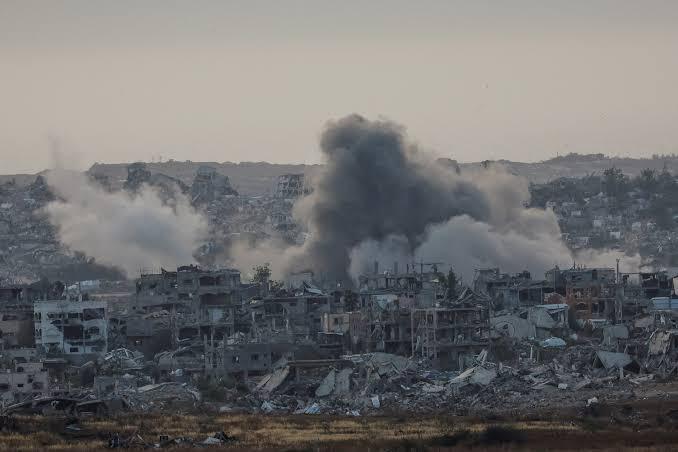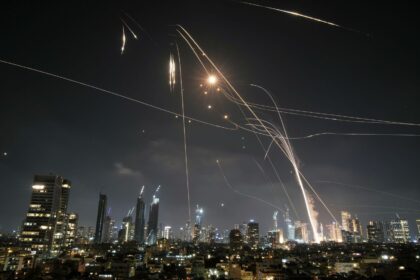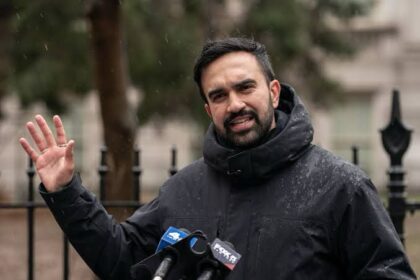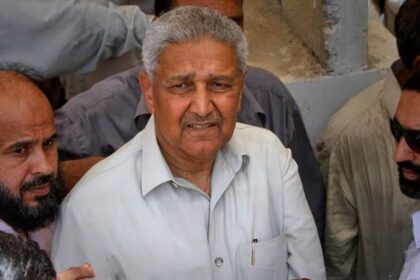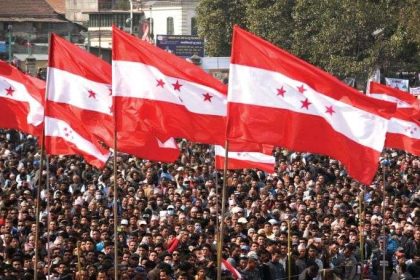The supremacy of the Occident has been a constant in the history of the Orient. Akin to the harsh antiquity of pinot noir, it has never faded into oblivion but has perpetuated irrevocably. As a people, the aftertaste still lingers on our palate. It can thus be observed that this hegemony has extended beyond exploitation or misrepresentation but has rather delved into the heart of darkness, echoing Conrad’s grim narrative as it goes. What has, resultantly, come forth is an annihilation of individuality in the midst of a systematic erasure of identities. It has not only been imposed but also ingrained and internalised, a kind of totalitarian dominance that has distorted the Orient’s self-perception. One wonders if this is simply because the West could not fathom anything beyond its own civilised reflection. A bloc so cultured that it considered geopolitical interventions and colonisation as noble endeavours in the pursuit of progressive profundity. For what better way to demonstrate ‘civilisation’ than to forcefully assert one’s values upon the others, all while cloaking these actions under the guise of enlightenment?
If anything, the Eurocentric powers have an acute tendency to reduce people and races to mere concepts. This reductionist approach turns their lived experiences, narratives and tragedies into abstractions that can only be conceptualised, into existences that can only be commodified and into identities that can only be exploited. Their lives, tragedies, and stories diminished to entries in Big Brother’s ledger, where individuality is a crime and humanity is a commodity. In this manner, interventionist policies are justified, and cultural imperialism is propagated by dehumanising entire populations and presenting them as signifiers in need of corresponding signified.
To put it bluntly, this ideological manipulation is not benign and never has been; it is what legitimised the ongoing Gaza massacre in Palestine, the Uyghur genocide in Xinjiang, the Rohingya extermination in Myanmar, the Syrian civil war subsequently marked by extensive civilian casualties, the Yemeni humanitarian crisis exacerbated by foreign intervention, and the exploitation of countless indigenous peoples for resource extraction or other monetary gains. Such machinations of narratives not only erase the voices and agency of the oppressed but also establish a perpetual cycle of violence and exploitation. As Spivak famously stated, ‘The subaltern speaks,’ yet often in muted tones, drowned out by the cacophony of coercive powers. It is the mere act of being the ‘saviour’ of civilisations that gives them away. Civilisations do not need to be saved at the hands of an outlier who does not understand native complexities and ways of life. This cultural erasure extends into the bounds of aesthetics, where even art becomes a silent accomplice.
The oddity of art and an amateur’s willed credulity are perhaps two sides of the same coin. The former thrives at the whims of the latter. The facade of Western intellect has been irreparably fractured since the onset of Israeli aggression in the Gaza Strip. It no longer appears as contradiction but as a lived antinomy: a civilization that upholds reason while normalizing massacre that sings hymns of freedom while scripting siege. For so long, Western civilization has functioned as a metric, as if cultural evolution flows linearly from East to West, primitive to progressive. It was not just a lens but a mirror held to the rest of the world: This is what you must become. We internalized this. We mapped our aspirations to match their milestones, viewing them as a benchmark. But Gaza unmasks a very hard truth: that the West’s greatest export has not been democracy or art or thought as we may perceive, rather, it has been its abhorrent plausible deniability. The skill to narrate atrocities as complexities. To mask war as policy. To drown the bloodstains in language: calling it ‘collateral,’ ‘proportionate,’ ‘strategic restraint.’
What is most unsettling is not just the brutality but the banality with which it is rationalised. Western civilization has elevated the aspect of civil discourse to an aesthetic. Moral anguish must now be palatable to be acceptable. Intellectuals debate genocide as though it’s a philosophical abstraction. Meanwhile, children are buried beneath the rubble of neutrality. Even art, once the frontier of resistance, now echoes softly in curated galleries and safe exhibitions, stripped of the urgency that it should portray. We are witnessing not just a moral collapse, but the aestheticisation of indifference, the conceptualisation of pain. And so, the irony is complete: the civilization that once claimed to have slain its gods now worships at the altar of order, even when that order is built on annihilation. The so-called progression reveals itself not as evolution, but as refined coercion. And perhaps that is the true oddity: the amateur believes, but it is the expert who enables.
When Rome was burning, Nero was playing the lyre. The historical accuracy of whether it was his indifference or an attempt to calm the populace remains unknown. What we do know is that his drawing was akin to that of a performative sovereign who is entirely disconnected from the consequences of his empire’s decay, yet fully immersed in curating its soundtrack. Today, we witness a similar show. The modern Nero does not come in the form of tyrants alone; he often wears a suit, speaks at podiums, and tweets in platitudes. He performs solidarity with scripted pauses and measured outrage. One must ask: is this governance, or is it theatre? In the post-truth era, performance has replaced policy. It’s not what is done but what is seen to be done that shapes public sentiment. A ceasefire tweet gathers more praise than a stopped missile. A viral condolence outshines a food convoy. The commodification of morality has never been more profound. Here lies a more unsettling truth: West is not blind, it is selectively asleep. Its silence is not ignorance, but strategy. There is immense political utility in curated helplessness, in pretending that war crimes are inevitable outgrowths of complex geopolitics. But some truths are not complex. A child under rubble is not complex. A siege without water is not complex. What is complex is the machinery that sustains it and the civilized silence that surrounds it.
Perhaps the most grotesque irony is that the West, having long abandoned religion, now enshrines secular humanism with such religious fervor that it can’t bear to acknowledge when its idols fail. Democracy, liberty, progress, these are no longer ideas to be examined; they are dogmas to be defended, no matter the corpses they rest upon. Any critique is branded as heresy, or worse, radicalism. And so, dissent is deflected with slogans, and inquiry buried beneath the rubble of reputation. Even academia, once the sanctuary of difficult truths has often capitulated to this moral sanitization. Scholars draft theoretical critiques of empire while averting their gaze from real-time imperial violence. Footnotes cannot stop bombings. Discourse does not disinfect complicity.
Unpopular but necessary is the admission that perhaps it is not hypocrisy but hierarchy that drives this global order. Perhaps Palestinians are not forgotten because the world is distracted but because their suffering fits into a tolerable cost of maintaining alliances, access, and arms trades. Maybe we need to stop asking why is no one doing anything? and start asking, who benefits when nothing is done?
The lyres play on, this time accompanied by blue-checked condemnations and UN briefings. And while Nero may have been a lone figure on a balcony, today’s empire plays its music in unison, a full orchestra of indifference, echoing over the ashes of Gaza, Yemen, Xinjiang, and every land reduced to a theatre stage for Occidental alchemy.




